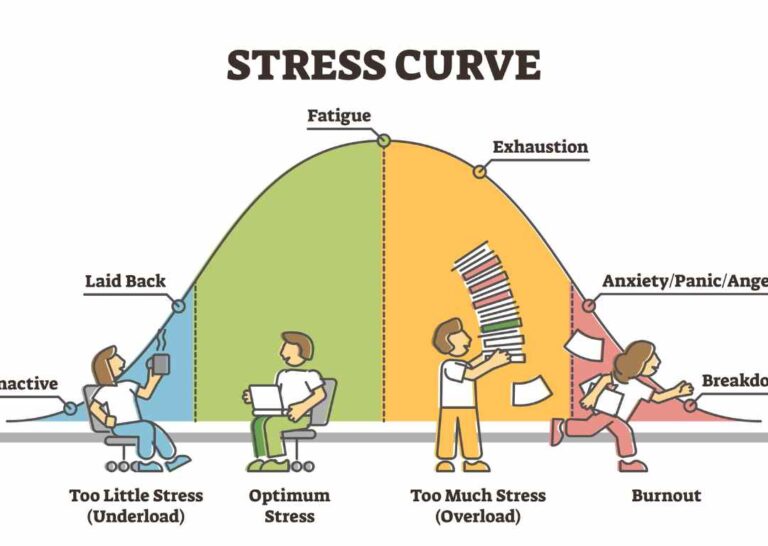Somatic Symptoms of Stress: When Mental Load Becomes Physical
What are the symptoms of Stress. Let’s unpack. Stress is often described as something we feel in our minds—worry, pressure, or constant overthinking. But stress doesn’t just stay in the brain. When mental load builds up, it spills into the body, creating somatic symptoms. These are physical signs of stress that can affect health, energy, and daily functioning.
Understanding how stress shows up in the body is essential. It not only helps people recognize early warning signs but also encourages healthier ways to cope before stress becomes overwhelming.
What Are Somatic Symptoms of Stress?
The word somatic comes from the Greek word soma, meaning body. Somatic symptoms are physical problems that arise from psychological or emotional stress rather than an obvious medical condition.
For example:
- Headaches from constant tension.
- Digestive issues triggered by worry.
- Back or neck pain caused by stress-related muscle tightness.
These symptoms are very real. Even though their root cause is mental or emotional, they affect the body as strongly as physical illness.
The Science: How Stress Affects the Body
When the brain perceives stress, it activates the fight-or-flight response. Hormones like cortisol and adrenaline flood the body, preparing it to respond to danger. While useful in emergencies, chronic stress keeps this system switched on too long.
- The American Psychological Association (APA) notes that chronic stress contributes to headaches, high blood pressure, and immune system problems.
- Research published in The Lancet Psychiatry found that stress-related disorders are linked to a higher risk of heart disease and autoimmune conditions.
In other words, what starts in the mind doesn’t stay there—the body carries the burden.
Common Somatic Symptoms of Stress
1. Headaches and Migraines
Tension headaches are one of the most common physical symptoms of stress. Stress tightens muscles in the head, neck, and shoulders, leading to pain. Migraines may also become more frequent during stressful periods.
2. Digestive Issues
Stress disrupts the gut-brain connection. It can cause nausea, bloating, diarrhea, or constipation. Conditions like irritable bowel syndrome (IBS) often worsen with stress.
3. Muscle Tension and Pain
Prolonged stress keeps muscles slightly contracted, leading to back pain, stiff shoulders, or jaw clenching (sometimes causing teeth grinding at night).
4. Sleep Disturbances
Stress makes it difficult to fall asleep or stay asleep. Over time, sleep loss adds to irritability, fatigue, and weakened immunity.
5. Increased Heart Rate and Blood Pressure
The body’s stress response raises heart rate and blood pressure. If chronic, this puts strain on the cardiovascular system.
6. Skin Problems
Stress can trigger acne, eczema flare-ups, or hives due to hormonal changes and immune dysregulation.
7. Weakened Immune System
Stress suppresses immune function, making people more vulnerable to colds, infections, or slower healing.
Somatic Symptoms Of Stress Are Often Ignored
Many people dismiss physical stress symptoms as “just tiredness” or “getting older.” Others may see doctors for headaches or stomach issues without realizing stress is the underlying cause.
This can lead to unnecessary medical tests and frustration when no clear diagnosis appears. Recognizing stress as a cause is key to addressing the root problem rather than just treating the surface symptoms.
Somatic Symptoms Of Stress and Mental Health
Somatic symptoms don’t just make the body feel worse—they also impact mental well-being. The cycle looks like this:
- Stress triggers physical symptoms (headaches, stomach pain, fatigue).
- These symptoms cause worry or frustration.
- Worry increases stress levels, worsening physical symptoms.
Over time, this cycle contributes to anxiety disorders, depression, or burnout. A study in Psychosomatic Medicine found that people with high somatic symptoms were more likely to experience long-term anxiety and depressive episodes.
Tips to Manage Somatic Symptoms of Stress
The good news is that addressing stress can significantly reduce somatic symptoms. Here are evidence-based strategies:
1. Mind-Body Practices
- Mindfulness meditation has been shown to reduce both stress and physical pain by calming the nervous system.
- Yoga and tai chi combine movement with breathing, easing muscle tension and improving mental clarity.
2. Exercise
Physical activity lowers cortisol and releases endorphins, the body’s natural stress relievers. Even a 20-minute walk can reduce muscle tension and boost mood.
3. Sleep Hygiene
Restorative sleep allows the body to repair itself and regulates stress hormones. Setting consistent sleep routines and limiting screen time before bed can help.
4. Nutrition
Stress can lead to unhealthy eating patterns. Focusing on balanced meals with whole grains, lean proteins, and vegetables stabilizes blood sugar and mood.
5. Professional Therapy
Cognitive Behavioral Therapy (CBT) helps identify thought patterns that fuel stress and somatic symptoms. Therapists can also guide relaxation techniques.
6. Medical Support
If symptoms are severe, consult a healthcare provider. They can rule out medical conditions and may recommend treatment alongside stress management strategies.
When to Seek Help For Symptoms Of Stress
It’s important to seek professional support if:
- Physical symptoms are persistent or worsening.
- Stress is interfering with work, sleep, or relationships.
- You feel overwhelmed, anxious, or hopeless.
Mental health professionals, doctors, and support groups can provide tools to break the cycle of stress and somatic symptoms.
Conclusion
Stress is not just in the mind—it lives in the body. When mental load becomes too heavy, it reveals itself through headaches, digestive issues, fatigue, and more. These somatic symptoms are real signals that it’s time to slow down, care for the body, and manage stress in healthier ways.
More Articles To Read
Supporting Loved Ones Through Challenges
Dealing With Addiction Issues: Why You Should Go To A Rehab
Tips To Celebrate Milestones In Recovery
4 Tips To Stop Hair Loss From Stress
Tips To Manage Mood Swings In Menopause





















